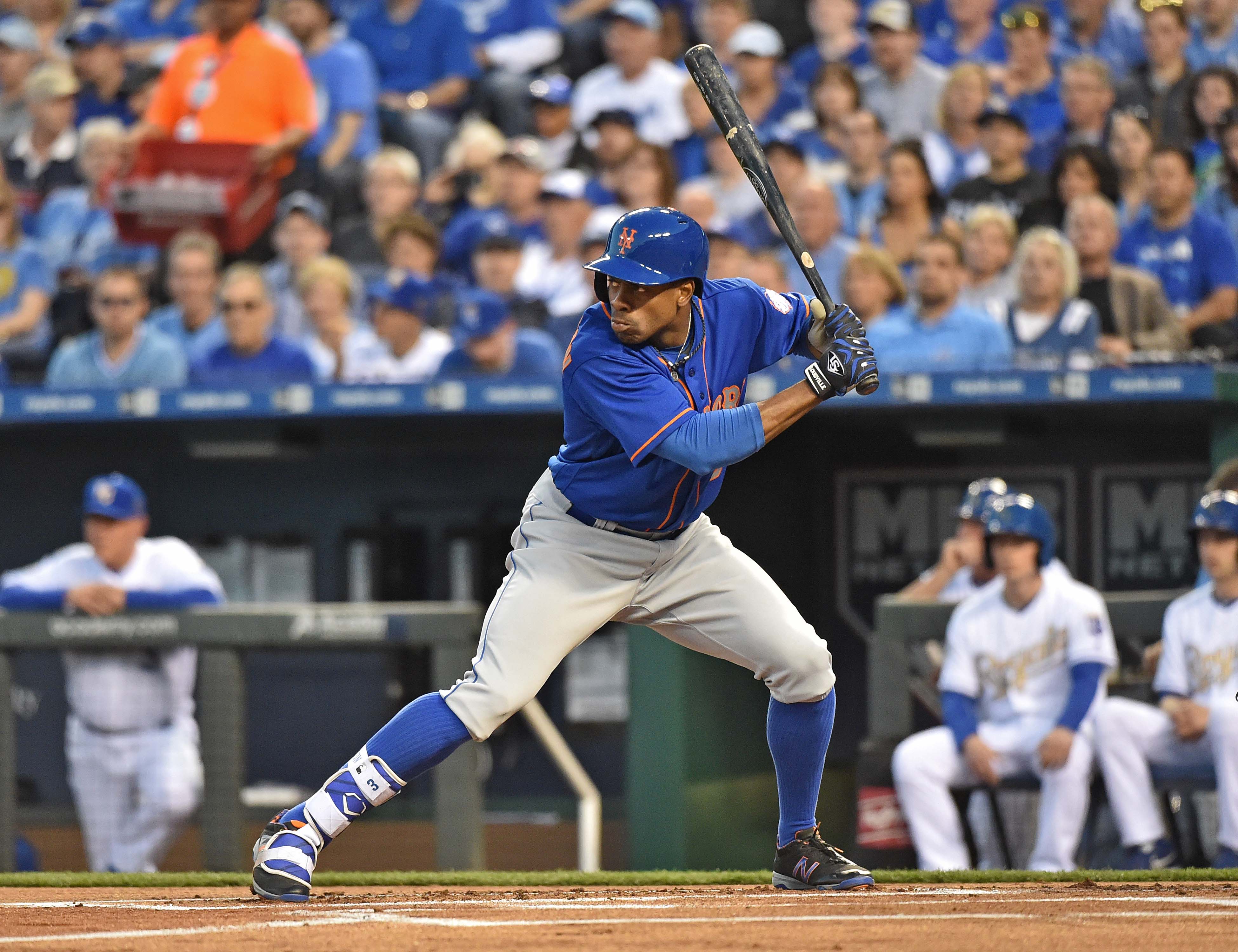Even the best managers aren’t perfect. In the first week of the season, Joe Madden, last year’s NL manager of the year, decided to start Matt Szczur because Villanova won the national championship in basketball. Terry Collins has been divisive throughout his first five seasons, but in recent years he has been receptive to sabermetric concepts including expansive use of platoons. On a macro level, Collins’ platoon decisions may be his most important.
Due to ample options in the Mets’ outfield Terry will need to balance playing time and platoon considerations. Collins has already committed to platooning Michael Conforto with Juan Lagares, telling Newday’s Marc Carig, “We’re in a situation where we’re trying to win games. This is not a time to develop players.”
Collins is correct, Lagares is the Mets’ best outfielder against left-handed pitchers and has to play. Over his career, he has been above-average against lefties (.281/.327/.429), which is only slightly worse than Yoenis Cespedes’ overall career line (.253/.323/.467). Consider too that Lagares is the Mets’ only true centerfielder and perhaps 10 or 20 runs better than Cespedes.
Collins’s decision to platoon Lagares is correct, but his decision to bench Conforto rather than Curtis Granderson is an error–certainly Cespedes will play. This isn’t simply a question of developing Conforto; the Mets’ priority must be to win. Collins’ reliance on his veterans is understandable, but Granderson struggled against left-handed pitching after overhauling his approach last year (.217 TAv in 2015, .249 career TAv, where .260 is league-average).
Meanwhile, Conforto had success against left-handed pitching in the minors but his major league track record is statistically insignificant–just 16 PA. Early in his career he has shown great aptitude as a hitter and yes, while development isn’t the main priority, Conforto will likely be in the heart of the Mets’ lineup for the next six seasons. He should get a least 100 plate appearances before Collins writes him off. Certainly giving Conforto the first opportunity does not preclude starting Granderson in the event Conforto flounders.
Two other factors favor starting Conforto every day: Granderson’s defense and his age. The primary concern with Granderson’s defense is his arm. For years runners have taken advantage of Granderson and to start the season the Royals and the Phillies took every extra base they could when the ball was hit to Grandy. Starting Conforto will improve the outfield defense as he has a much stronger arm and is rated slightly better than Granderson by FRAA.
Furthermore, a platoon will allow the Mets to protect Granderson’s playing time. Grandy, now 35, is the third-oldest starting right fielder in baseball behind Carlos Beltran (38) and Nelson Cruz (35). Both of them will regularly DH and rotate out of the lineup. While Granderson was a stalwart atop the Mets’ lineup during his first two years in Flushing, both the team and the player would benefit from managing Granderson’s playing time. Benching him against left-handed starters provides a perfect opportunity.
Collins faces a similar situation in the infield, even if he’s reluctant to admit it. Neil Walker has always struggled against left-handed pitching and is a clear choice to platoon with Flores despite being a switch hitter. Walker’s career TAv against left-handed pitchers is .242, worse than Granderson and Lucas Duda (.271), and Flores represents a substantial improvement (.294). Collins is aware of Walker’s numbers, but will defer to the veteran’s experience. Though Flores started at first base this spring, it appears he will not platoon with Duda but will spell him as needed or in case of emergency (no Eric Campbell, please).
The Mets have yet to face a left-handed starter, so Collins hasn’t disclosed or implemented his plan. Ultimately, should he give Granderson and Walker 150 plate appearances versus left-handed pitchers, the effect would be greater than any single in-game decision. Collins, who improved as a tactical manager since his promotion in 2010, will trust in his players’ talent and the numbers rather than simply deferring to experience.
Photo Credit: Peter G. Aiken-USA TODAY Sports
